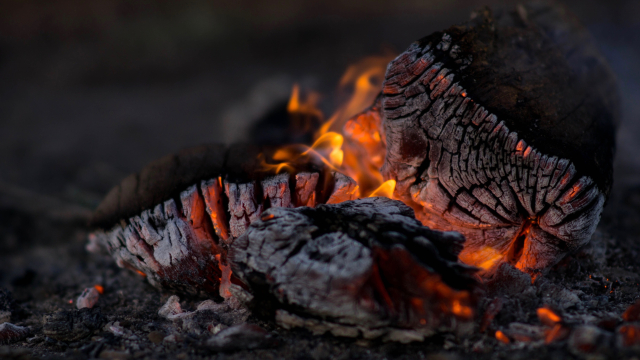Burning

Listen to this daily worship
Jeremiah 15: 10-18 (NRSV)
10 Woe is me, my mother, that you ever bore me, a man of strife and contention to the whole land! I have not lent, nor have I borrowed, yet all of them curse me. 11 The Lord said: Surely I have intervened in your life for good, surely I have imposed enemies on you in a time of trouble and in a time of distress. 12 Can iron and bronze break iron from the north?
13 Your wealth and your treasures I will give as plunder, without price, for all your sins, throughout all your territory. 14 I will make you serve your enemies in a land that you do not know, for in my anger a fire is kindled that shall burn forever.
15 O Lord, you know;
remember me and visit me,
and bring down retribution for me on my persecutors.
In your forbearance do not take me away;
know that on your account I suffer insult.
16 Your words were found, and I ate them,
and your words became to me a joy
and the delight of my heart;
for I am called by your name,
O Lord, God of hosts.
17 I did not sit in the company of merrymakers,
nor did I rejoice;
under the weight of your hand I sat alone,
for you had filled me with indignation.
18 Why is my pain unceasing,
my wound incurable,
refusing to be healed?
Truly, you are to me like a deceitful brook,
like waters that fail.
This is not an easy passage, but it shows why Jeremiah was thought to be the author of Lamentations. God’s anger was burning against the land, against the people, against the city. Jeremiah knows it and feels it. He could say that these words of God were burning inside him and giving him delight, but at the same time these same words set him alone with burning pain and inflamed wound, feeling that God has let him down. This is what it means to be identified with God and with an awful situation at the same time, as Jesus was on the cross.
Jeremiah would recover, he would again experience God’s pleasure as he continued to serve God in that difficult situation (read the closing verses of that chapter), but a passage like this, and especially the whole book of Lamentations is given to us because for many in our world today there is no easy escape from awfulness, the things that happen when the predictable story of individuals and nations is suddenly collapsed, when pain seems unending, when hope is limited to a few verses in the middle of a book which rehearses despair at every other point. We may want to say that God’s anger is not the last word, we may even want to question the theology of the first chapter of Lamentations, but before we start to ‘become more righteous than God’ we must share the pain — as God does.
PRAY:
O Lord, you know:
- The burning pain of the refugee, between one home and another, under fire of enemy and circumstance.
- The burning agony of mothers watching their children die of hunger, the anger of fathers disappointed at lack of help, let down by empty promises.
- The burning frustration of those who see their countries slowly ruined by bad leadership.
- The burning indignation of prophets rejected by the people they are called to address.
- The burning panic of those faced with news of their own mortality.
- The burning tears of those whose family have been torn from them by war, disaster or disease.
- The burning sadness of those who feel your absence is for ever.
Remember them, and visit them with your compassion, we pray, in the name of Jesus Christ, whose love burned deep in life and death, Amen.




 Add to Favourites
Add to Favourites








Login to comment.